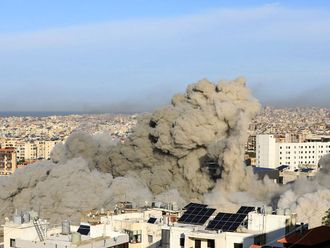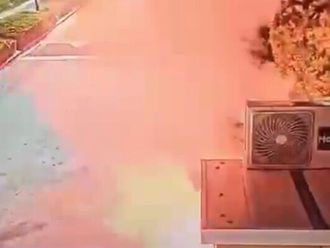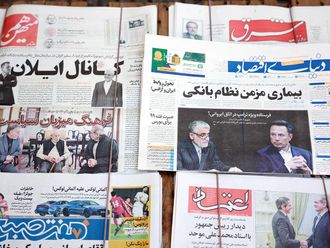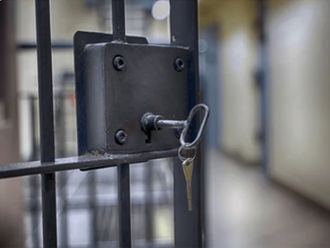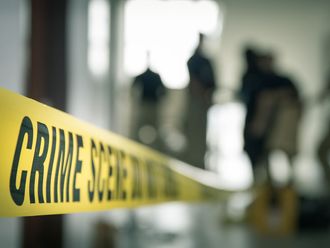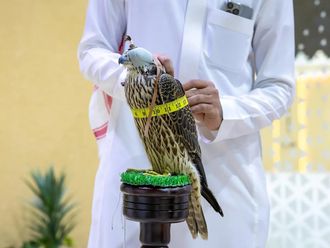February 15-16, 2011 A riot in Benghazi is triggered by the arrest of human rights activist Fat’hi Tarbel, who had actively campaigned for the freedom of political prisoners, Quryna newspaper reports.
February 24 Anti-government militias take control of Misrata after evicting forces loyal to Muammar Gaddafi.
October 20 Muammar Gaddafi is shot dead after captured outside an underground hideout in his hometown of Sirte.
October 23 Jordan Mahmoud Jibril, Chairman of the Executive Office of the National Transitional Council, announced the complete liberation of Libya from dictatorship.
October 25, Muammar Gaddafi is buried secretly in Libya.
October 31, Abdul Rahim Al Keeb, the man elected to lead the task of rebuilding Libya after eight months of conflict.
November 19 Former Libyan leader Muammar Gaddafi’s fugitive son and one-time heir apparent Saif Al Islam has been arrested in southern Libya.
January 24, 2012 Muammar Gaddafi loyalists have seized control of Bani Walid and raised the ousted regime’s green flag.
January 28 The ruling National Transitional Council adopted a new electoral law for Libya to form its first constituent assembly in June, dropping a quota set aside for women.
February 12 Authorities in Niger have put Al Saadi Gaddafi, the son of slain Libyan leader Muammar Gaddafi, under house arrest after he said in a television interview that an uprising was imminent in his homeland.
February 13 Representatives of about 100 militias from western Libya said they had formed a new federation to prevent infighting and allow them to press the country’s new government for further reform.
February 20 Misrata holds Libya’s first free elections in four decades in a vote officials in the western city say will prove the North African state is able to create a functioning democracy.
February 23 Libyan troops intervened to end fighting between rival tribes in the city of Al Kufra, near Libya’s borders with Chad, Sudan and Egypt.
March 4 Libyan government officials unearthed a mass grave with 157 bodies of rebel fighters and civilians in Bin Jawad that was a major battleground during the country’s 2011 civil war.
March 6 Tribal leaders and militia commanders declared a semi-autonomous region in oil-rich eastern Libya, a move opponents fear will be the first step toward outright dividing the country six months after the fall of Muammar Gaddafi.
March 10 2 Demonstrators flooded the streets of Tripoli and Benghazi to protest federalism killing one person when an iconic market was set ablaze.
March 15 Libya’s stock market reopened for the first time since the fall of Muammar Gaddafi with trading in 10 companies valued at $3.1 billion (Dh11.38 billion).
March 17 Mauritanian authorities acting with French help arrested Muammar Gaddafi’s former chief of intelligence, Abdullah Al Sanussi, as he entered the West African country on a false passport.
March 31 Six days of tribal clashes in a remote desert town in southern Libya have killed 147 people.
April 21 The Libyan government assumed control of the country’s main international airport, taking over from militia fighters who had been providing security for months in the absence of an official force to do the job.
May 14 More than a million Libyans have registered to vote in the landmark elections in a show of enthusiasm for democracy after decades of dictatorship under Muammar Gaddafi.
May 21 Abdullah Al Sanussi, Libya’s former head of intelligence and the man who ran Libya’s extensive spy network and was considered one of the closest confidants of ex-leader Muammar Gaddafi was indicted in Mauritania.
June 09 Libya has arrested a female Australian lawyer, Melinda Taylor, from the International Criminal Court for trying to pass “dangerous” documents to Saif Al Islam, detained son of slain leader Muammar Gaddafi.
June 10 Libya announced the postponement of elections for the country’s constituent assembly, initially slated to be held by June 19 to July 7.
Compiled by Gulf News Archives


